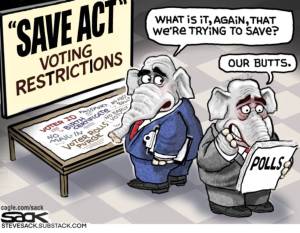With pragmatic adviser leaving, will Obama bend to ideologues?
Published 12:01 am Sunday, June 12, 2011
WASHINGTON — Austan Goolsbee, who just announced he will step down as President Obama’s top economist, tells the story of a flight he once took from St. Louis to Chicago that got caught in a towering thunderstorm.
The jet pitched and dove. Drinks flew. Lights went out. No reassuring announcement came from the cockpit. In front of Goolsbee, an older woman seated next to a teenager began screaming: “We’re gonna die! We’re gonna die!”
“Wow,” Goolsbee remarked to the teenager after a hard landing. “That was some flight.”
The teen was stunned. “This was my first time on an airplane,” he said. “Is it always like this?”
Now Goolsbee knows what the boy felt like. “In Washington,” he says, “I’m that kid: ‘Is this normal? Is Washington always like this?'”
Goolsbee, chairman of the Council of Economic Advisers, comes from the empirical school of economic thought: He rejects ideology and highfalutin theories in favor of cold, hard data. He believes in what works.
But when he brought his family to Washington two and a half years ago and joined the Obama administration, he found a culture based on ancient superstitions: liberals who think the government holds all the answers, and conservatives who adhere to a religious belief that all ills can be cured by dramatic cuts in government spending and taxes. Goolsbee is a voice of reason in a town that resists common sense.
So far, Goolsbee’s methodical approach has reinforced Obama’s own instinct to take the long view. In returning to Chicago, Goolsbee is guessing that little economic policy will be made in Washington over the next 17 months and that he will be of more use to Obama as a surrogate for the re-election campaign. But his departure also increases the risk that Obama will panic, that he will be spooked by a monthly jobs report or poor polling numbers and feel pressure from his political advisers to give in to the ideologues’ demands.
I’ve known Goolsbee since we went to college together nearly a quarter-century ago. Though he has been discreet with me about his role in the administration, I know from my other reporting that his moderating influence on Obama should not be underestimated.
The two men met when Obama was still an unknown state senator seeking to assemble a 2004 U.S. Senate campaign in Illinois. Obama called economists at Harvard, but they didn’t return his calls. Goolsbee, then a University of Chicago wunderkind, did return the call. When Obama first met the lanky 34-year-old, his first words were, “You can’t be Professor Goolsbee! Professor Goolsbee smokes a pipe.”
Obama has heeded Goolsbee’s counsel ever since — forgiving him when he caused a kerfuffle during the presidential campaign over Obama’s position on NAFTA — and reportedly was not thrilled with Goolsbee’s decision to return to Chicago. That’s understandable: Obama’s middle-of-the-road economic policy may be the right one, but it is difficult to defend against pressure to do more to reduce stubborn unemployment. Goolsbee has been better than the rest at defending Obama’s package of relatively small items such as worker training and R&D incentives alternately (and unsuccessfully) labeled the “New Foundation” agenda and “Winning the Future.”
Goolsbee endorsed many of the extreme measures Obama took two years ago, because the private sector was in free fall and massive government spending was the only option. But now the data tell a different story: The private sector has stabilized, profits have returned, productivity is high, American competitiveness has improved, and large sums of money have accumulated on corporate balance sheets.
The most efficient way to produce jobs, then, is to give the private sector incentives to spend its big pile of cash on new hires. That’s why Obama, on Wednesday, was at a community college in Northern Virginia touting little-known policies such as “Skills for America’s Future” and the “Workforce Investment Act.”
But as a political argument, this isn’t as clean as the opposition’s simple prescription — huge tax and spending cuts — or the calls from economists on the left for another massive stimulus. Goolsbee doesn’t object to either idea as a matter of ideology; he looks at the data and finds that neither would boost employment as much as what Obama is doing.
With the disaster in Japan, the debt crisis in Europe, the spike in gas prices and a disappointing unemployment report, it isn’t getting any easier to counter the demand for action. With Goolsbee returning to Chicago, it will be that much more difficult for Obama to resist the political pressure to be rash.
Dana Milbank is a Washington Post columnist. His email address is danamilbank@washpost.com.


